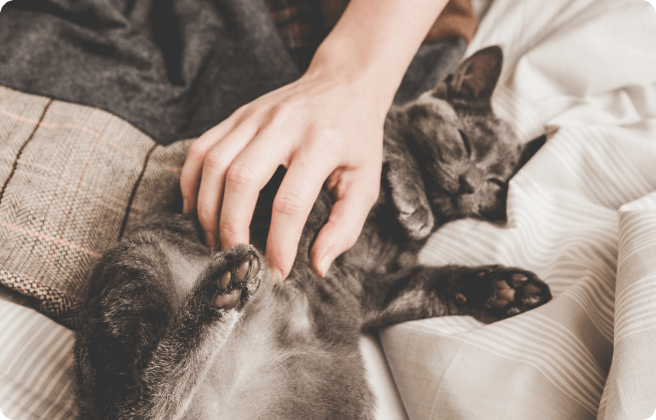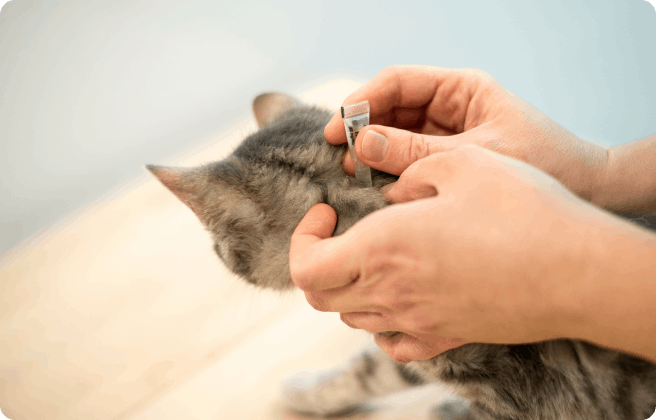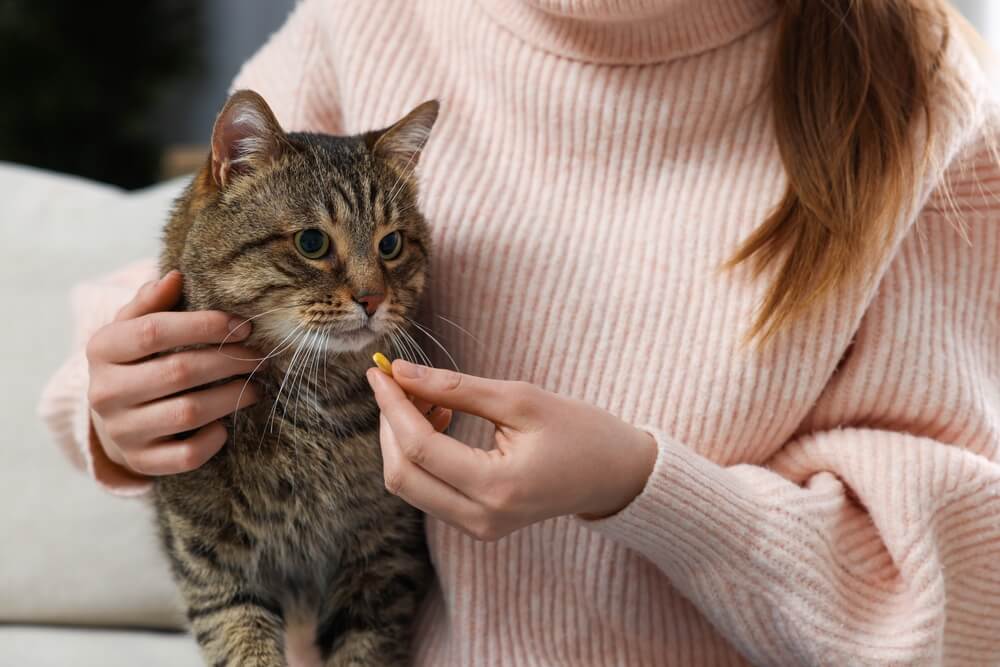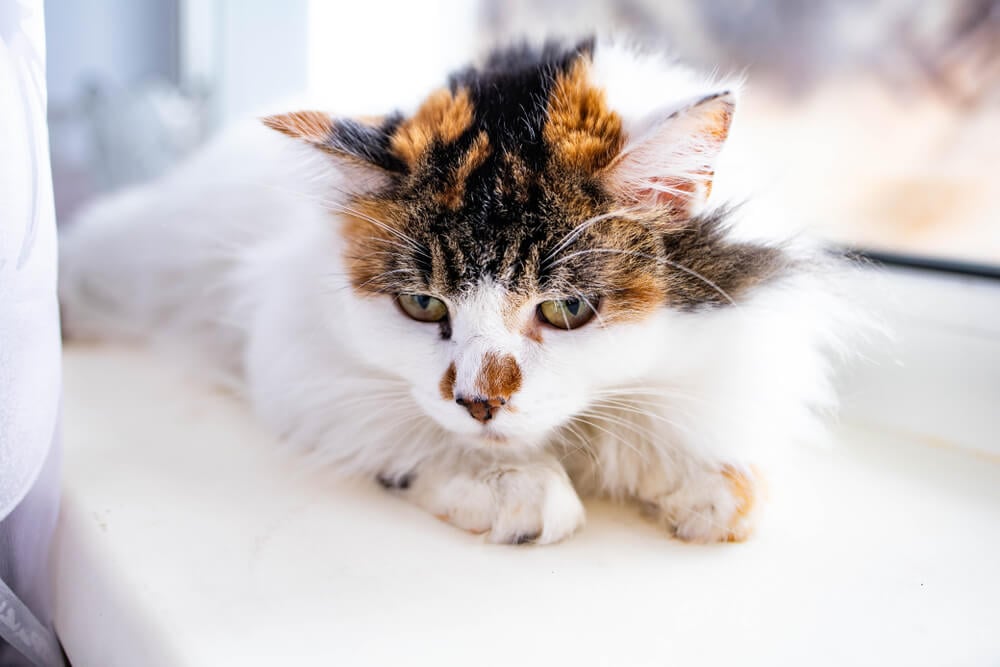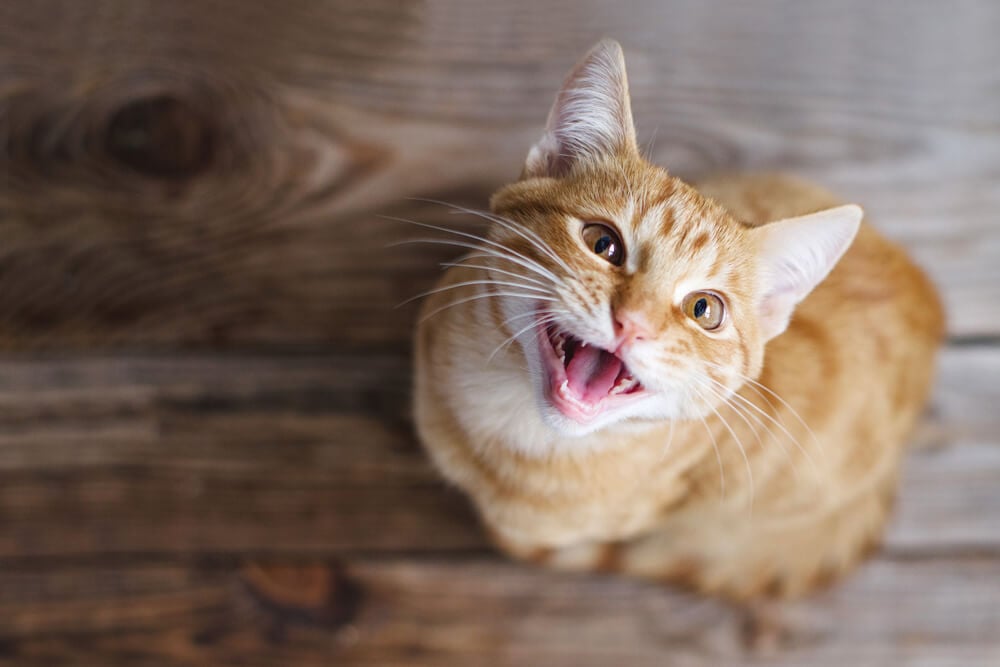
Cats, our lovable mysterious creatures can be hard to read and even more difficult to please. Food isn’t always a motivation for many cats and they aren’t as obvious as dogs when it comes to begging.
Sure, your cat is likely to rub around your ankles and purr a little at their meal times. But, if you are bothered by a hungry, loud screaming feline jumping on counters when having dinner or cooking, this isn’t the behavior you want to put up with.
So, you need to understand why your cat is begging and how to stop it.
Health issue
Firstly, you need to rule out any health concerns your cat may have. If your cat enjoys exploring outdoors, they could have worms, and that means they aren’t getting all their nutrients from food because the worms are getting their fair share too.
Worms can be easily treated so consult your vet for the best options. If you don’t believe worms are the issue, other more serious health concerns could result in begging such as diabetes or hyperthyroidism.
If your cat is begging for food and then not eating once they have it, that behavior could be a sign of food allergies or gum disease. Your vet will be able to either prescribe a food or treat gum disease and relieve any pain.
Does my cat have a nutrient deficiency?
Similarly, your cat may be lacking in nutrients and is literally crying out for them. Evaluate your cat’s diet to ensure it contains high-quality ingredients and is complete and balanced. A cat that receives overall poor-quality nutrition or not enough food will show signs of hunger.
This is why you must also consider if your cat eating enough — it’s important to feed your cat the correct amount of food each day that is appropriate for their age and breed.
Overall, it’s important to rule out health or nutrition-related issues when it comes to begging so a visit to the vet is recommended in the first instance.
Boredom
Beyond diet, there could be a whole bunch of behavioral reasons why your cat is begging. One common problem could be that your cat is bored and is seeking attention. Your cat may be an indoor cat who doesn’t get enough stimulation, and eating is their main activity or they are simply seeking attention.
The good news is, that you can figure this out by simply playing more with your cat and see if it makes a difference. Additionally, get a few new toys or try putting their food in a puzzle to increase mental activity and monitor any changes in begging behavior.
How to stop your cat from begging
Ignore your cat
If your cat is pestering you, try not to give in and feed them additional food or treats. Of course, it’s important to shower them with affection and playtime normally, but discipline where food is involved is equally as important. Simply walk away if they are begging for food and stay consistent with this habit.
Praise them at mealtime
On the other hand, when it is time for dinner, give your cat lots of positive reinforcement. Call them to dinner (although they will already be there waiting), and make a show of setting down their bowl and praising them for finishing their food. This will give them clear cues of when it’s time to eat and the portion size they will get. Your cat needs to understand when feeding time is so they aren’t expecting more throughout the day.
Stick to feeding times
Once your cat understands what dinner time looks like, they will be expecting it. Like humans, cats like routine, and having set feeding times means they know when the food is coming so they won’t beg for it outside of those times.
Try your best to stick to exact feeding times and remove the bowl out of side out of mind when the meal is over. This avoids your cat lurking around the bowl expecting more food.
Keep them calm
If your cat dashes into the kitchen at the first sound of a food bag or tin opening, meowing eagerly for a treat, try to calm them down. When this occurs, gently scoop them up and move them to a quieter area of your home. Alternatively, offering them a toy as a distraction can help you carry on with your kitchen tasks without interruption.
Avoid giving them human food
It’s tempting to slip a bit of chicken to your cat under the table and turn a blind eye when the visitor feeds them from their plate. While this may satisfy your cat momentarily, the long-term effects aren’t worth it. Not only is this adding extra calories to their diet, but it also encourages begging. Teaching your cat boundaries and regular mealtime is essential to avoid such behavioral issues.
Remember, breaking the begging habit may take time and patience, but the effort is well worth it. After ensuring your cat’s health, implementing some discipline can lead to a happier, more contented companion. With consistency and positive reinforcement, you’ll soon see your furry friend living their best, beg-free life.
We uphold the highest editorial standards when creating the authoritative content pet parents rely on and trust.
Every piece of clinical content on the Cat Food Advisor is reviewed by our certified Veterinary Advisory Board, which consists of licensed veterinarians and medically certified specialists.
Our reviews are completely independent; we are not paid by any pet food company to promote their products favorably. We do not accept money, gifts, samples or other incentives in exchange for special consideration. For more information see our Disclaimer & Disclosure page.





